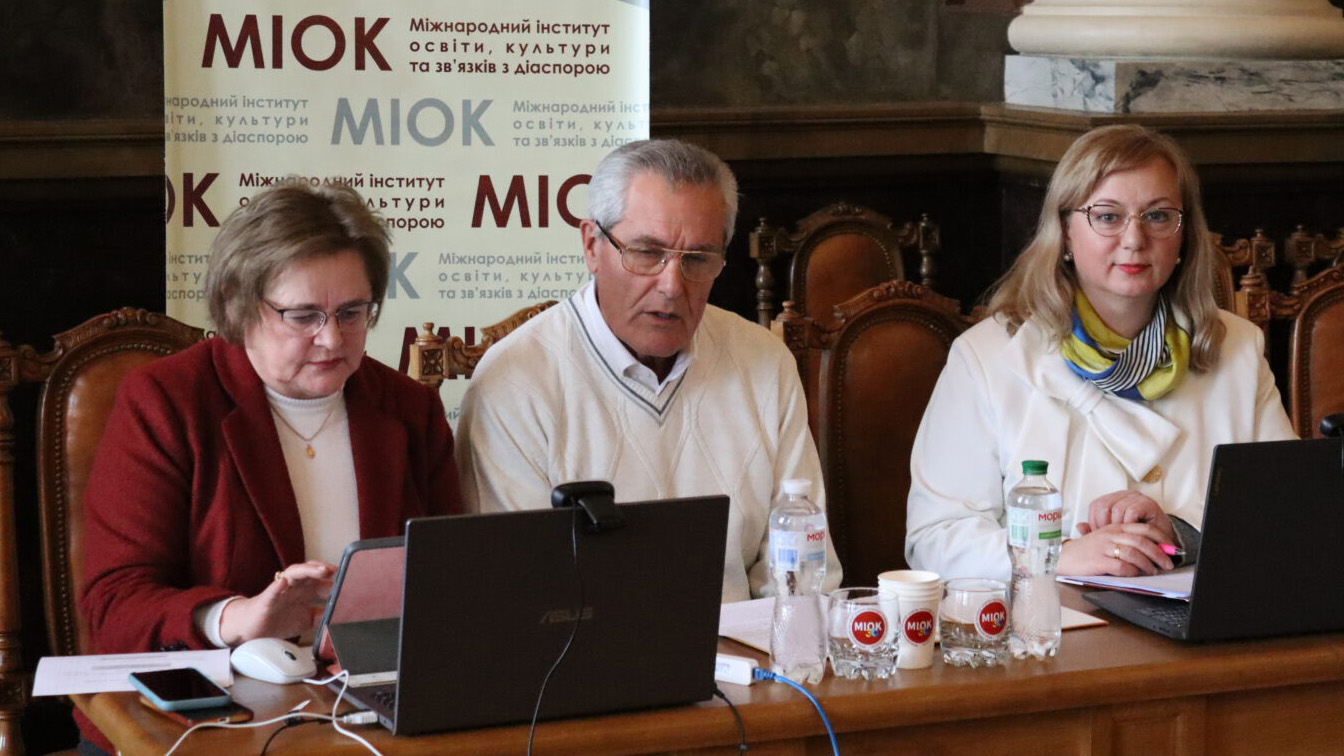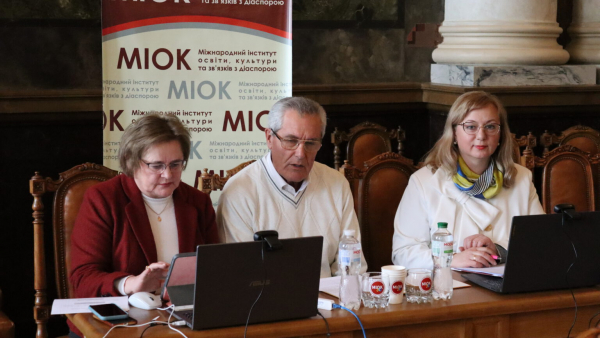On December 11, 2022, the International Institute of Education, Culture and Diaspora Relations, Lviv Polytechnic National University, together with the World Federation of Ukrainian Women’s Organizations (WFUWO) and the Ukrainian World Congress, held the Second World Forum of Ukrainian Studies Educational Institutions «The Strength of Ukraine is in Education!». Distinguished guests: educators and representatives of Ukrainian diplomacy attended the event which took place online.
Iryna Kliuchkovska, the director of IECDR, started her welcome speech on the occasion of the opening of the Forum with the disappointing predictions of the Institute of Demography, according to which by 2030, about 35 million Ukrainians will remain in Ukraine due to the war. In the speaker’s opinion, such a sad number certainly encourages to act: «The first task is to win. And for us, educators, – to develop such an education system in Ukraine and beyond, so that we all work together for the interest of Ukraine».
Yuriy Bobalo, Rector of Lviv Polytechnic, was the next to give a welcome speech. In his speech, he pointed out the striking difference between the First World Forum of Ukrainian Studies Educational Institutions and the disappointing reality of the Second: «In 2018, Lviv Polytechnic was glad to host Ukrainian educators from 36 countries. It was six days of active discussions, useful workshops and presentations. Today we are holding the Second World Forum, and the focus of our attention, unfortunately, is the challenges, provoked by the war, to Ukrainian education both in Ukraine and abroad». The rector ended his speech with a wish for a fruitful discussion.
Yevgeniya Petrova, head of the World Federation of Ukrainian Women’s Organizations, also addressed the audience. In her short welcome speech, the speaker noted the important role of the diaspora in supporting forced refugees: «Ukrainian churches, communities, youth centers and Saturday schools are the strong outpost in the diaspora that resists assimilation, nurtures love for Ukraine, unites and maintains Ukrainianness». Mz. Petrova also defined the field of questions and challenges, the answers to which educators in Ukraine and abroad should seek together, in particular at the Forum.
Summarizing the results of the Second World Forum of Ukrainian Studies Educational Institutions, Iryna Kliuchkovska, director of IECDR, presented the Ukrainian Educational Universe platform to the participants as a response to the request of educators from abroad. According to the speaker, this project was a difficult and long-term challenge for IECDR, which the Institute coped with. The director sincerely expressed her gratitude to the creators and enthusiasts of the Ukrainian Universe: the leading specialist of IECDR Olena Mytsko, who headed the project, and teachers Liubov Liubchyk, Halyna Barliak, Oksana Levytska and Zhanna Pasichnyk. «The Ukrainian Educational Universe is an invaluable database, which contains information about Ukrainian studies centers that have not come under the influence of the Russian world».
According to the program, after the welcome speeches, the panel discussion «After the victory: a vision of Ukrainian education abroad» began. The event was moderated by Oksana Horda, Candidate of Philological Sciences and senior research associate of IECDR.
The panel discussion was followed by the presentation «Creating a network of inclusive resource centers for the education of Ukrainian refugee children: on the example of Portugal». Ihor Ostrovsky, Doctor of Technical Sciences, Professor at the Department of Semiconductor Electronics, Lviv Polytechnic National University, made a proposal to create inclusive resource centers. Such institutions would be responsible for psychological counseling of children and mediation between the Portuguese school and Ukrainian schoolchildren.
The Forum ended with conversations within the framework of the World Cafe. They were moderated by Olena Dubas-Chorniuk, the head of the initiative «Vulyk idey. Clever Children’s Club», Germany, and Halyna Barliak, head of the Center for Studying and Nurturing the Ukrainian Language «Zerniatko» (Italy).
All important proposals made by the Forum participants during the discussion and in the framework of world cafes will be included in the Resolution and will become instruments of change.

